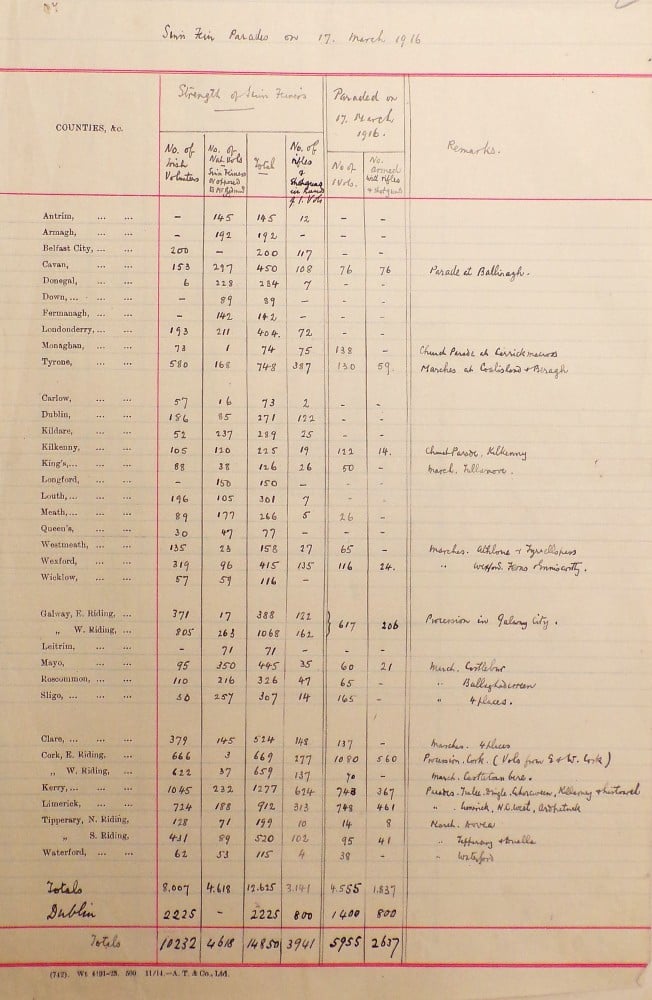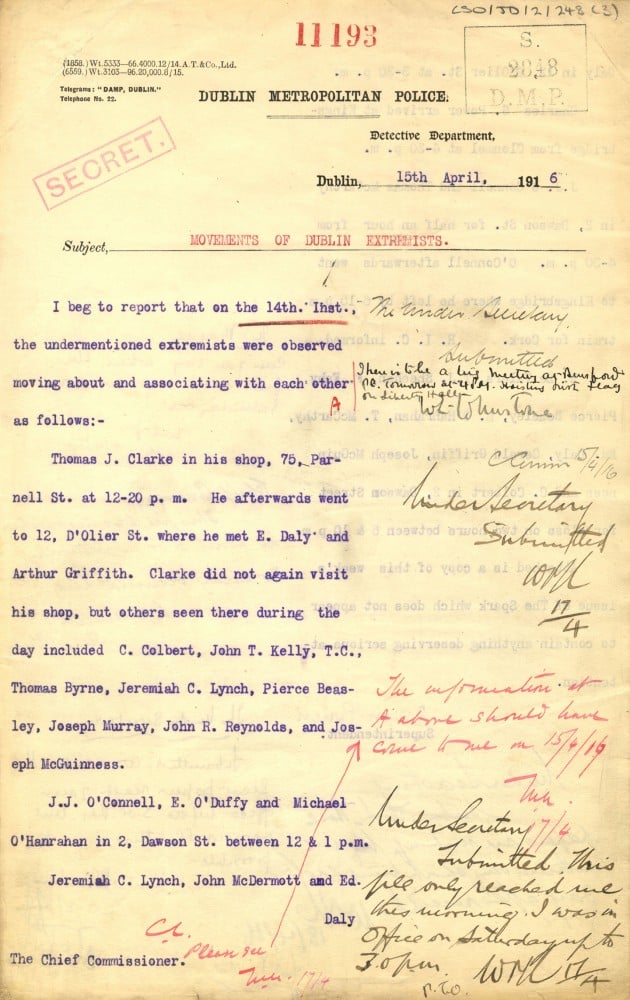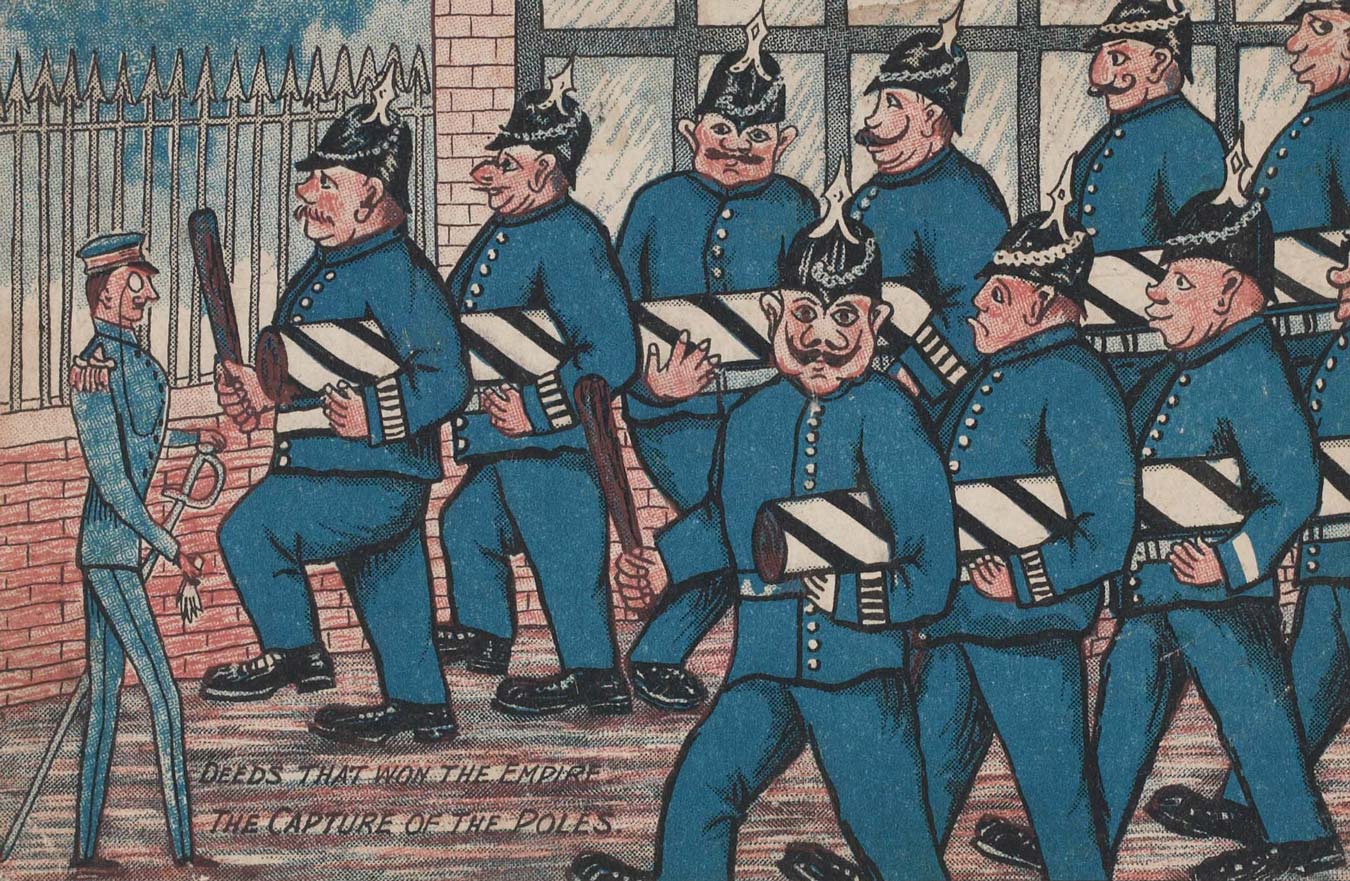Irish police blame Rising on government policy
Dublin, 1 June 1916 - Inspector-General of the RIC, Neville Chamberlain, has told the Royal Commission of Inquiry into the rebellion in Ireland that the British Government's 'policy of non-intervention tended to discourage the police force'.
The unprecedented comments came as the Commission of Inquiry continued to hear evidence from a wide range of people in respect of the outbreak of the rebellion.
Chamberlain went on to say that the police had much information on the growth of Sinn Féin and of the Irish Citizen Army. Police intelligence officers were also well aware of developments such as the importation of arms, the accumulation of ammunition and explosives, and the increasingly dangerous nature of the people involved.
In a stark statement, the Inspector-General said that this information had been communicated to government. He also said that he had a made a protest to the government against permitting the lapse of restrictions of the importation of arms into Ireland.

|

|
Left: Report monitoring Sinn Féin parading on St Patrick's Day 1916. (Image: UK National Archives, CO 904/23 2); Right: Dublin Metropolitan Police (DMP) report on the movement of extremists, 15 April 1916. The movements of Thomas Clarke, Edward Daly, and Sinn Féin founder Arthur Griffith are referenced. An annotation to the report also states ‘[T]here is to be a big meeting at Beresford Pl. [Place] tomorrow at 4pm. Hoisting Irish Flag on Liberty Hall’ (headquarters of the Irish Citizen Army). (CSO JD/2/248, National Archives of Ireland) Click images to enlarge.
Other testimony
The Inspector General was supported in his claims by Colonel
Johnstone, Chief Commissioner of the Dublin Metropolitan Police.
He said that he had given advice that the rebel leaders
should be arrested in advance of the Easter rebellion.
Further evidence to the Commission of Inquiry was given by Major Price of the Intelligence Department at Dublin Castle, who noted that many of the rebels were poets and were well-read and clever people.
Price told the inquiry of the large sums of money that flowed into Ireland from American and German sources. He also spoke of the bomb-making and other activities that had been carried out around the city in the months before the rebellion. He said that recommendations for action to deal with this danger was usually overlooked.
The Inquiry is expected to continue hearing evidence for a considerable period of time.
[Editor's note: This is an article from Century Ireland, a fortnightly online newspaper, written from the perspective of a journalist 100 years ago, based on news reports of the time.]





















